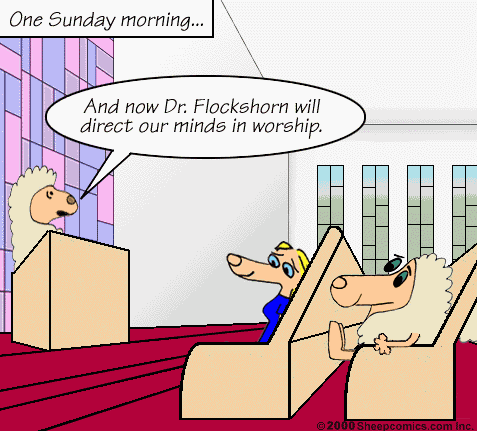
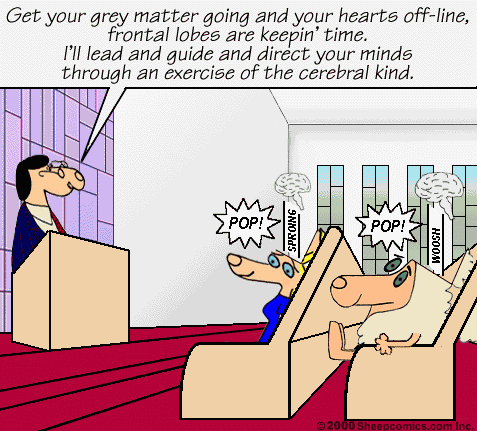
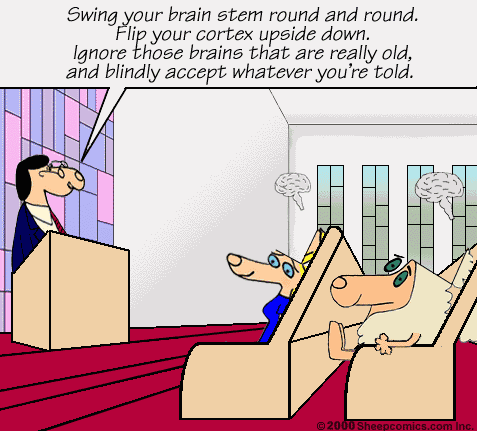
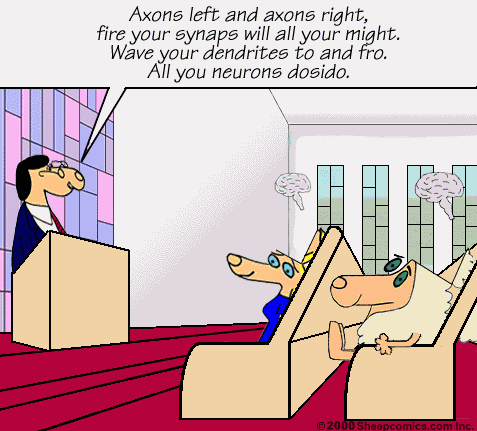
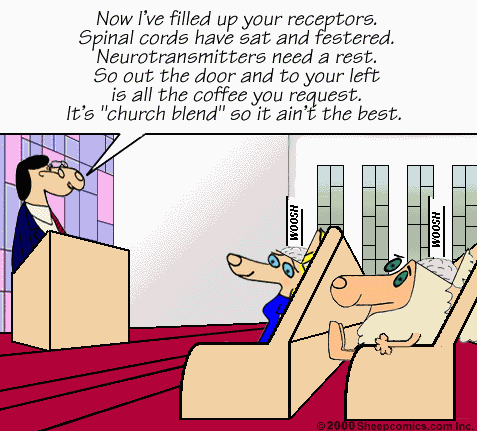
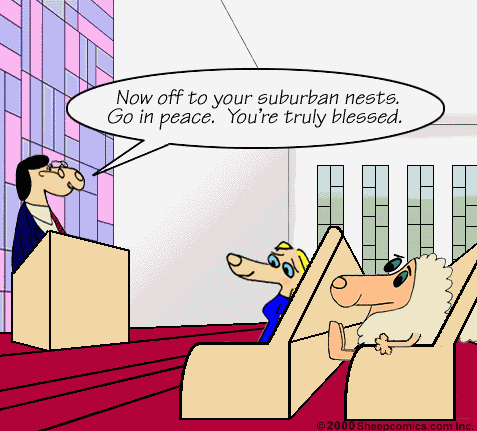
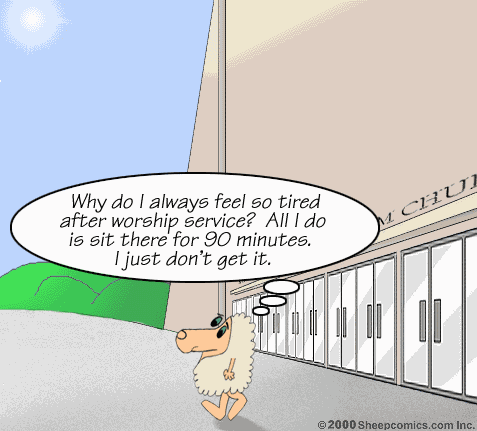
Editorial Notes
Iím not exactly sure when it happened, but sometime over the last twenty years I started to really think about some of the things we say and do during "worship service". One of the phrases I have heard many times has to do with "directing minds". For example, "And now brother (insert name here) will direct our minds in (insert ritual here)."
The continual and ritualistic usage of this seemingly innocuous phrase says a lot about how different our Christian assemblies of today are when compared with what we find in the New Testament. It seems to me that this little phrase "direct your minds" comes very close to what Sunday morning assemblies are all about, that is, getting our minds directed. Itís little more than a cerebral obstacle course that takes about 90 minutes for our "minds" to complete (assuming proper direction, of course).
Letís travel this obstacle course together. First, there is the "opening prayer". Why? Does God need to know that we are "logged on" now? Itís strange to me that no matter how little actual prayer of thanksgiving or supplication occur during "worship service", there are always "opening" and "closing" prayers. Do we really need to tell God when our meeting start and end? Or, it this just a way of telling ourselves when to start "being spiritual" and when we can stop and revert to our normal behavior?
Next, there is "singing therapy". Nothing further can happen until everyone has sung for half and hour. Now, Paul wrote in Ephesians 5: 19-20 "Speak to one another with psalms, hymns and spiritual songs. Sing and make music in your heart to the Lord, always giving thanks to God the Father for everything, in the name of our Lord Jesus Christ." (NIV)
Now the singing happens, but it seems that the "one another" doesnít. If I am in a large, traditional church, I sing to the pew furniture and the hair style in front of me. It isnít from my heart; itís according to the numbers posted up front, the numbers in the bulletin for this Sunday, or the numbers as they are read over the PA system. If itís really done right, the "song service" will have a theme which provides a segue to the sermon. (I got so I could see a "giving sermon" coming twenty minutes away just by the songs that were sung beforehand). This isnít singing from the heart; it's singing "by the numbers" according to the program.
Next, you may or may not take "communion", or the Lordís Supper. Different denominations have long disputed over whether or not the frequency of communion is of critical importance, but regardless of frequency, it is done almost universally the same way. A long time ago I was part of a denomination that took "communion" quarterly (I think), and then the entire Sunday morning assembly was devoted to ritual surrounding it. For most of my adult life, however, I was part of a group of churches that make a point of taking the Lordís Supper every Sunday.
No matter the frequency, however, what we do today seems little more than a cerebral exercise compared with what we see in the New Testament. Itís usually, in my experience, a time of quite meditation where the physical substance has been reduced to an absolute minimum and is referred to as "emblems". (Have you found "emblems" in the New Testament yet? I havenít.) No talking is allowed; just a minute or two of silent meditation. Hundreds of people alone in a crowd.
This is certainly nothing like the Passover that Jesus celebrated in the Gospels. Itís not like what happened in Troas in Acts 20. Itís nothing like the feast that happened in Corinth. (See 1 Cor 11) Now, it shouldnít be just like what we see in Corinth because that was an abusive and out-of-control situation. Itís interesting to me, however, that Paulís recollection of Jesus in 1 Cor 11:23-24 follows the sequence of "bread, supper, cup" not just "bread, cup". I donít believe he was trying to tell the Corinthians to take all food and community out of the Lordís Supper and turn it into a silent meditation exercise with "emblems". I believe he wanted those hosting this "Lordís Supper" to wait until everyone got there so that everyone could have some food. He wanted the starving to be fed and the rich to exercise compassion and moderation. This is what made the supper that began with the breaking of bread and ended with the cup indeed a "Lordís Supper", or a supper belonging to the Lord. Iím not saying that the traditional approach to the Lordís Supper today is necessarily wrong, but must it always be done in silence and isolation, as quickly as possible, over just enough food to starve?
Finally, there is the "sermon". This is most important part of the assembly. This is where the elite professional delivers his message and tells us what to think. Only one person per congregation is allowed to do this, and it must be the same person every week. No one is allowed to raise their hand and ask questions. This one person can never allowed to be wrong about anything. He is the "Overmind" that all others must submit to or leave.
Contrast that with what Paul writes in 1 Cor 14:26 "What then shall we say, brothers? When you come together, everyone has a hymn, or a word of instruction, a revelation, a tongue or an interpretation. All of these must be done for the strengthening of the church." (NIV) How often does this happen today? Does it ever happen? How things have changed!
Finally, the closing prayer. (See the remarks on the "opening prayer" above.)
There. Weíre done. Go have a cup of coffee.
Web Shepherd